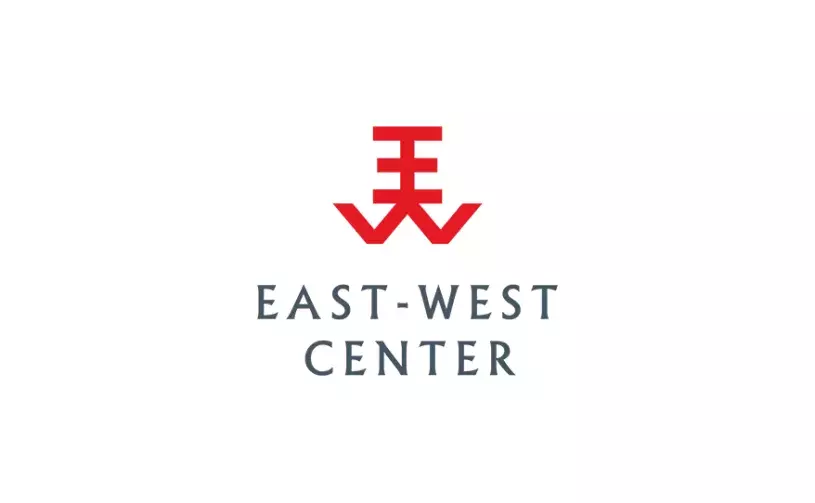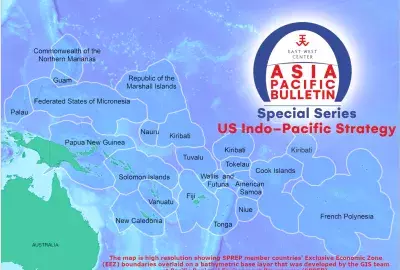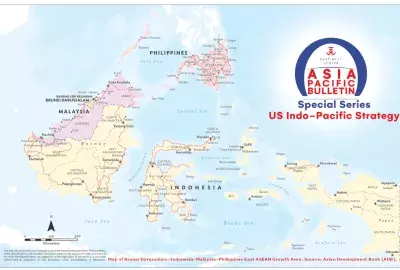Error message

| Kimkong Heng, Research Fellow at the Cambodian Institute for Cooperation and Peace, explains that "While the infections were rapidly increasing in March, the Cambodian government introduced... a controversial Law on National Administration in the State of Emergency." |
Amid the COVID-19 pandemic, Cambodia passed a law which will have huge social and political ramifications for the country, its people, and its political development.
The country reported its first confirmed COVID-19 case on January 27. Two months later the number of confirmed cases rose to around 100 and then quickly reached 122, and then no new cases were confirmed for five weeks between April 22 and May 20. By the end of May, Cambodia had three active cases but zero reported deaths from COVID-19. However, cases have spiked since then. As of August 4, there were 241 confirmed cases and no deaths from COVID-19. Of those confirmed, 200 patients (66%) have recovered.
While the infections were rapidly increasing in March, the Cambodian government introduced a number of measures to control the spread of COVID-19, one of which was the passage of the controversial Law on National Administration in the State of Emergency (or the “state of emergency” law).
To respond to a potential public health crisis caused by COVID-19, the government proposed and approved the draft of the state of emergency law on March 31. The bill was then quickly approved by the National Assembly and the Senate – Cambodia’s legislative bodies – on April 09 and April 17, respectively. It was later signed into law on April 29 by the acting Head of State, Say Chhum, who is also the President of the Senate, while King Norodom Sihanomi, the Head of State, was on a medical visit to China, apparently to avoid the responsibility of signing the bill into law.
The law consists of 12 articles under five chapters. Articles 1 and 2 state the purpose and scope of the law. Articles 3 and 4 explain the procedure and conditions for putting the nation in a state of emergency. Article 4 provides that conditions for declaration of a state of emergency shall involve dangers caused by war or foreign invasion, public health emergencies caused by pandemics, tumultuous chaos to national security and public order, and severe disasters that threaten or cause harm to the whole nation.
Article 5 lists twelve measures the government has the right to take in a state of emergency. Some of them include prohibition or restriction of freedom of travel, assembly, and work; prohibition or restriction of people from leaving home or any residence; introduction of measures related to mobilization, confiscation, control, and management of necessary property and service to meet the emergency; measures related to closure of public or private place, surveillance, and tracking by all means for the receipt of information via all telecommunication systems; and prohibition or limitation of the distribution or dissemination of information that could cause public fear or unrest, or bring about damage to national security, or create confusion about the situation of the state of emergency.
Article 6 requires the government to report the imposed measures to the legislative bodies. Articles 7-10 stipulate punishment for obstruction to the execution of emergency measures, disobedience to emergency measures, and criminal liability of legal entities. The punishment can range from a monetary fine of 100,000 riels (about USD $25) to 1 billion riel (approximately USD $250,000) and a jail sentence from 1 month to 10 years. Articles 11 and 12 provide for the abrogation of all provisions contrary to this law and the urgent declaration of this law.
The state of emergency law - despite being endorsed by the government, its supporters and the newly appointed Justice Minister Koeut Rith who wrote an initial draft of the bill - has drawn criticism from critics and human rights groups. The law “is just bogus, nakedly designed for something other than COVID-19,” said Sophal Ear, associate professor of diplomacy and world affairs at Occidental College in Los Angeles. He argued that one of the conditions for declaring the law (Article 4), “tumultuous chaos to national security and public order,” basically means “whatever those in power decide displeases them.”
The law, if invoked, will give Hun Sen’s government greater and more likely unchecked powers to run the country by authority and intolerance of people who have differing belief systems. Not only may it potentially lead to gross violations of the freedom to inform and be informed, it may also be used to restrict the right to privacy as well as freedoms of expression, association and peaceful assembly. This law is believed to further weaken democratic rights and development in Cambodia and will have profound social and political ramifications for the country and people.
Given that human rights in Cambodia have deteriorated over recent years – as evidenced by the government’s crackdown on political opponents, human rights defenders, and government critics – the state of emergency law will add weight to a series of repressive laws such as the Law on Political Parties and the Law on Non-Governmental Organizations.
As to its social impact, more Cambodia people will be subject to arbitrary arrest, often to be “educated” for voicing concerns or spreading fake news online and offline, while others may face imprisonment when they express critical opinions about the government, particularly, at the time of writing, about how the government handles the social, economic and political consequences of the COVID-19 pandemic.
Although it remains to be seen as how the law will affect civil and political liberties as well as the lives of Cambodian people, given that the chance of declaring the law is very slim or merely “0.1 percent” as Prime Minister Hun Sen said, many Cambodians will probably have in them a feeling of fear, intimidation, and lack of confidence in expressing their concerns over critical issues in society. Their freedom of expressions, alongside their right to privacy, will be further undermined with the introduction of this new law.
As for politics, this law may be a useful legal tool for Hun Sen, Cambodia’s prime minister since 1985, who is poised to hand power to his oldest son, Hun Manet, a Commander of the Royal Cambodian Army, as soon as circumstances permit.
In the future, should there be chaos and disorder caused by objection to the dynastic transfer of power – a worst-case scenario – the state of emergency law may come in handy. It may also help to legitimize Hun Sen’s government’s ongoing crackdown on dissent and further entrench his regime.
| Kimkong Heng, Research Fellow at the Cambodian Institute for Cooperation and Peace, explains that "While the infections were rapidly increasing in March, the Cambodian government introduced... a controversial Law on National Administration in the State of Emergency." |
Amid the COVID-19 pandemic, Cambodia passed a law which will have huge social and political ramifications for the country, its people, and its political development.
The country reported its first confirmed COVID-19 case on January 27. Two months later the number of confirmed cases rose to around 100 and then quickly reached 122, and then no new cases were confirmed for five weeks between April 22 and May 20. By the end of May, Cambodia had three active cases but zero reported deaths from COVID-19. However, cases have spiked since then. As of August 4, there were 241 confirmed cases and no deaths from COVID-19. Of those confirmed, 200 patients (66%) have recovered.
While the infections were rapidly increasing in March, the Cambodian government introduced a number of measures to control the spread of COVID-19, one of which was the passage of the controversial Law on National Administration in the State of Emergency (or the “state of emergency” law).
To respond to a potential public health crisis caused by COVID-19, the government proposed and approved the draft of the state of emergency law on March 31. The bill was then quickly approved by the National Assembly and the Senate – Cambodia’s legislative bodies – on April 09 and April 17, respectively. It was later signed into law on April 29 by the acting Head of State, Say Chhum, who is also the President of the Senate, while King Norodom Sihanomi, the Head of State, was on a medical visit to China, apparently to avoid the responsibility of signing the bill into law.
The law consists of 12 articles under five chapters. Articles 1 and 2 state the purpose and scope of the law. Articles 3 and 4 explain the procedure and conditions for putting the nation in a state of emergency. Article 4 provides that conditions for declaration of a state of emergency shall involve dangers caused by war or foreign invasion, public health emergencies caused by pandemics, tumultuous chaos to national security and public order, and severe disasters that threaten or cause harm to the whole nation.
Article 5 lists twelve measures the government has the right to take in a state of emergency. Some of them include prohibition or restriction of freedom of travel, assembly, and work; prohibition or restriction of people from leaving home or any residence; introduction of measures related to mobilization, confiscation, control, and management of necessary property and service to meet the emergency; measures related to closure of public or private place, surveillance, and tracking by all means for the receipt of information via all telecommunication systems; and prohibition or limitation of the distribution or dissemination of information that could cause public fear or unrest, or bring about damage to national security, or create confusion about the situation of the state of emergency.
Article 6 requires the government to report the imposed measures to the legislative bodies. Articles 7-10 stipulate punishment for obstruction to the execution of emergency measures, disobedience to emergency measures, and criminal liability of legal entities. The punishment can range from a monetary fine of 100,000 riels (about USD $25) to 1 billion riel (approximately USD $250,000) and a jail sentence from 1 month to 10 years. Articles 11 and 12 provide for the abrogation of all provisions contrary to this law and the urgent declaration of this law.
The state of emergency law - despite being endorsed by the government, its supporters and the newly appointed Justice Minister Koeut Rith who wrote an initial draft of the bill - has drawn criticism from critics and human rights groups. The law “is just bogus, nakedly designed for something other than COVID-19,” said Sophal Ear, associate professor of diplomacy and world affairs at Occidental College in Los Angeles. He argued that one of the conditions for declaring the law (Article 4), “tumultuous chaos to national security and public order,” basically means “whatever those in power decide displeases them.”
The law, if invoked, will give Hun Sen’s government greater and more likely unchecked powers to run the country by authority and intolerance of people who have differing belief systems. Not only may it potentially lead to gross violations of the freedom to inform and be informed, it may also be used to restrict the right to privacy as well as freedoms of expression, association and peaceful assembly. This law is believed to further weaken democratic rights and development in Cambodia and will have profound social and political ramifications for the country and people.
Given that human rights in Cambodia have deteriorated over recent years – as evidenced by the government’s crackdown on political opponents, human rights defenders, and government critics – the state of emergency law will add weight to a series of repressive laws such as the Law on Political Parties and the Law on Non-Governmental Organizations.
As to its social impact, more Cambodia people will be subject to arbitrary arrest, often to be “educated” for voicing concerns or spreading fake news online and offline, while others may face imprisonment when they express critical opinions about the government, particularly, at the time of writing, about how the government handles the social, economic and political consequences of the COVID-19 pandemic.
Although it remains to be seen as how the law will affect civil and political liberties as well as the lives of Cambodian people, given that the chance of declaring the law is very slim or merely “0.1 percent” as Prime Minister Hun Sen said, many Cambodians will probably have in them a feeling of fear, intimidation, and lack of confidence in expressing their concerns over critical issues in society. Their freedom of expressions, alongside their right to privacy, will be further undermined with the introduction of this new law.
As for politics, this law may be a useful legal tool for Hun Sen, Cambodia’s prime minister since 1985, who is poised to hand power to his oldest son, Hun Manet, a Commander of the Royal Cambodian Army, as soon as circumstances permit.
In the future, should there be chaos and disorder caused by objection to the dynastic transfer of power – a worst-case scenario – the state of emergency law may come in handy. It may also help to legitimize Hun Sen’s government’s ongoing crackdown on dissent and further entrench his regime.







